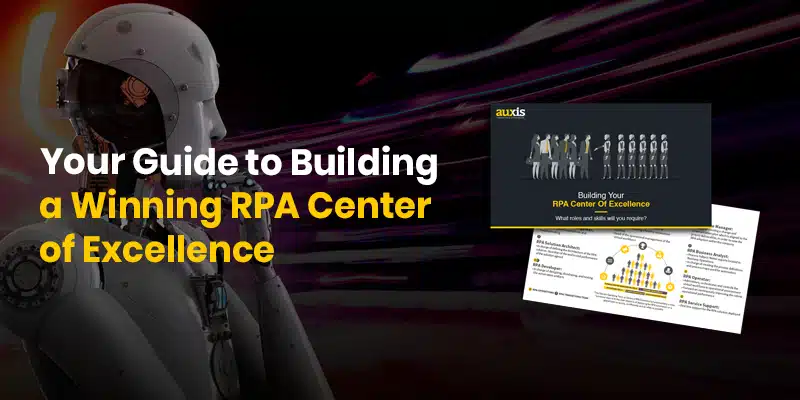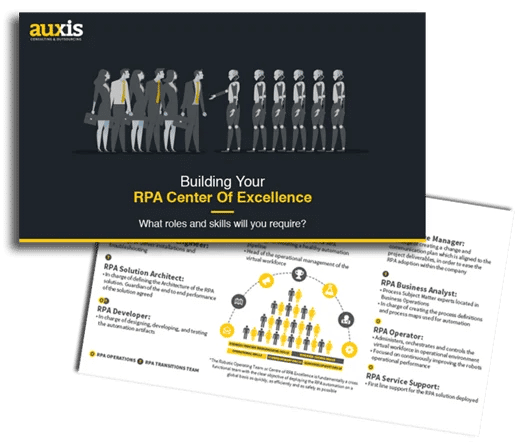We already know that in the COVID-19 post-pandemic world, organizations are running to implement RPA practices. Nevertheless, over 65% of companies have not automated more than ten processes, and between 30 and 50% of RPA projects fail.
Implementing RPA is not a simple task. Quite the opposite. It requires a knowledgeable team of professionals with experience in its application.
At Auxis we have implemented numerous business automation processes and delivered hundreds of robots. As a result, we can confirm that implementing RPA right goes beyond knowing the technology, and depends far more on the skills of the RPA Deployment Project Team. In this document, we have schematized and detailed the roles and responsibilities of an RPA Center of Excellence.
Defining Roles is Crucial
In any organization, to successfully scale RPA, the team needs a strong commitment, deep knowledge, experience in long-term complex projects, and is constantly motivated to deliver high-quality performance. But overall, they need to know their precise tasks and duties at each step of this long-term implementation process.
It is imperative to answer questions such as:
- Who is in charge of defining the idea of automation?
- Who designs and tests the automation artifacts?
- Who has to improve the robot’s operational performance?
This is the RPA Center of Excellence Roles and Responsibilities report. You will find for example, that the RPA Champion is an internal evangelist of the mission and vision. The Solution Architect must be the guardian of the agreed result. The Change Manager identifies stakeholder’s typical/expected changes, etc.
Establishing Skill Sets is Imperative
Skills are the knowledge, competencies, and abilities needed to perform a job. At Auxis, we prioritize the general and specific skills that each team member needs for success. Engineers working in automation involve a cross-functional team that can have skills in business process re-engineering, operations, programming, business change, development, problem-solving, and communication.
In this document, we offer insights into the roles and the competencies that each team member must have to define, design, and build an RPA Center of Excellence.
If you would like to learn more, download a free copy of our report.




